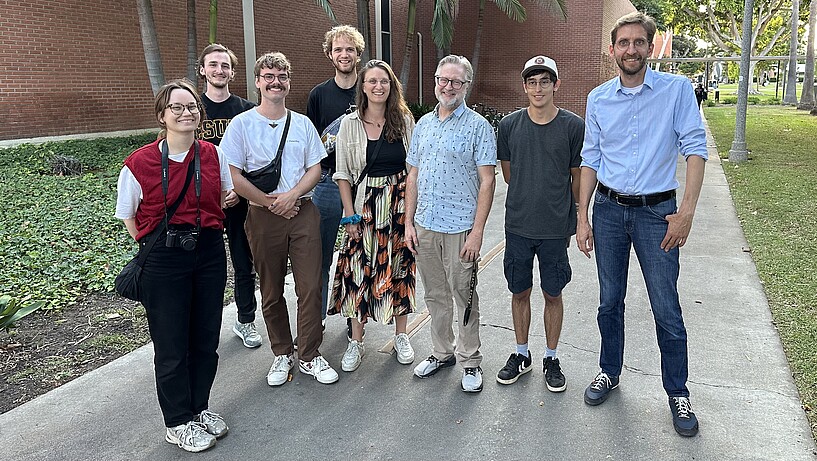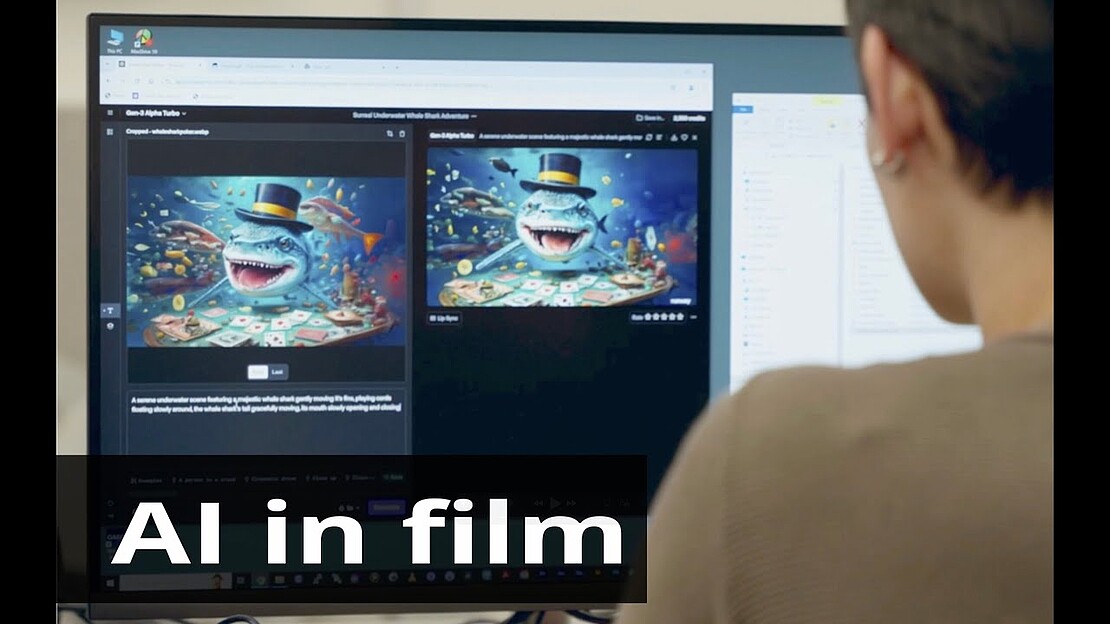The strategic partnership with California State University, Long Beach (CSULB) in the field of media technology has been running since 2013. The teaching exchange has been supported by ISAP funds from the German Academic Exchange Service (DAAD) and the ‘HAW goes USA’ budget since 2017 and reflects the special expertise of both universities. In 2024, the focus of the HAW Hamburg guest lectures and workshops in Long Beach was on artificial intelligence and its role in the film industry at the request of CSULB. Prof Adam Moore, Chair of the Department of Cinematic Art in Long Beach, said in advance, ‘I think it will be an incredible tool for all creative people as we move into this new era, and we would love to learn from Hamburg's expertise.’
As part of two guest lectures to 160 CSULB film students, Professor Marco Grimm and Martina Hentig spoke about ‘text-to-image’ and ‘image-to-video’ generation and discussed the opportunities and risks of AI in film with the students. They were surprised at how many students had reservations about AI in film. Prof Kent Hayward, Professor of Film Production at CSULB, confirms this attitude from his own conversations with students. ‘I have a number of students who are against AI and that kind of surprised me. They say I don't want to contribute to that technology. I don't want to help that Large Language Model to learn. I didn't expect that. I thought they would like to use it for their projects.’
But there were also CSULB students who weren't so sceptical towards AI and twenty of them had the opportunity to look more closely at the topic in workshops. The students were able to try out various AI tools such as runway, Copilot Dall-E 3 and Magic Studio, which the HAW Hamburg lecturers had brought with them, and create their own AI-generated clips. Marco Grimm's impression after the joint work: 'The students were surprised at how easy it was to create a video from a generated image. But at the same time, they were surprised at how difficult it is to achieve exactly the desired result.' And this confirms his current opinion on AI: ‘I believe that we are a long way from generating a red button that you press and by writing a prompt, a complete film appears.'


